DC3 FCMAT Follow-Up Report Background
In recent years, the Yuba Community College District (YCCD) has been experiencing a downward trend in student enrollment, and this trend was exacerbated by the COVID-19 pandemic. In recognition of the seriousness of the decline in enrollment and its impact on district finances, the Yuba Community College District Board’s Finance Committee requested that the Fiscal Crisis and Management Assistance Team (FCMAT) conduct a study to analyze the district’s cost structure and assess its current and future fiscal condition. FCMAT presented its report to the YCCD Board in October 2022.
As a follow-up to the report, the Chancellor directed the colleges and District Services to gather input from their constituency groups and develop recommendations to address the challenges identified by the FCMAT fiscal analysis. He further directed that a DC3 working group be formed to analyze, synthesize, and prioritize recommendations from the colleges and District Services reports. The group also identified additional recommendations.
Purpose and Charge of the DC3 Working Group
The following Purpose Statement was developed to guide the work of the DC3 FCMAT Working Group:
To develop a report for the Chancellor that identifies specific strategies for resource reallocation to address ongoing structural deficits to achieve a sustainable total cost of operations that allow YCCD to serve our students in an equitable way and leads to sustainable high-quality operations.
During the kick-off meeting, the Chancellor shared his overarching vision and framework for the work. Key points included:
- Building our foundation to ensure a sustainable future by addressing structural issues through resource reallocation
- Ensuring YCCD has adequate resources aligned in a way to attract and innovatively serve our students and communities
- YCCD has to change to survive as a viable and vibrant institution
- Proactive resource reallocation to create the institution of the future
Recommendations
The DC3 FCMAT Working Group organized four writing teams that identified 24 unprioritized recommendations/strategies in four areas (FTES Growth/Student issues, Classroom Efficiency/Faculty Obligation Number (FON), Total Cost of Operations, and Other). These recommendations were evaluated by the entire working group using the framework below and the level of support was recorded for each recommendation. For Support with Reservations and Do Not Support, the concerns and feedback were documented and are in this report.
Levels of Support:
- Fully Support
- Support with Reservations
- Do Not Support
The DC3 FCMAT Working Group felt it was important to prioritize the recommendation utilizing criteria that reflected the charge of the task force. Prioritization was considered an important component of the report development process as it could inform the development of a robust implementation plan. The team recommends dedicating substantial and appropriate resources and attention to a subset of the recommendations in year one to ensure timely and complete implementation. The full report including ranked recommendations can be found here.
This work was the basis of the YCCD Emergency Conditions Report submitted to the State Chancellors’ Office during the spring of 2023, which summarized the planning work the District has undertaken to recapture enrollments.
